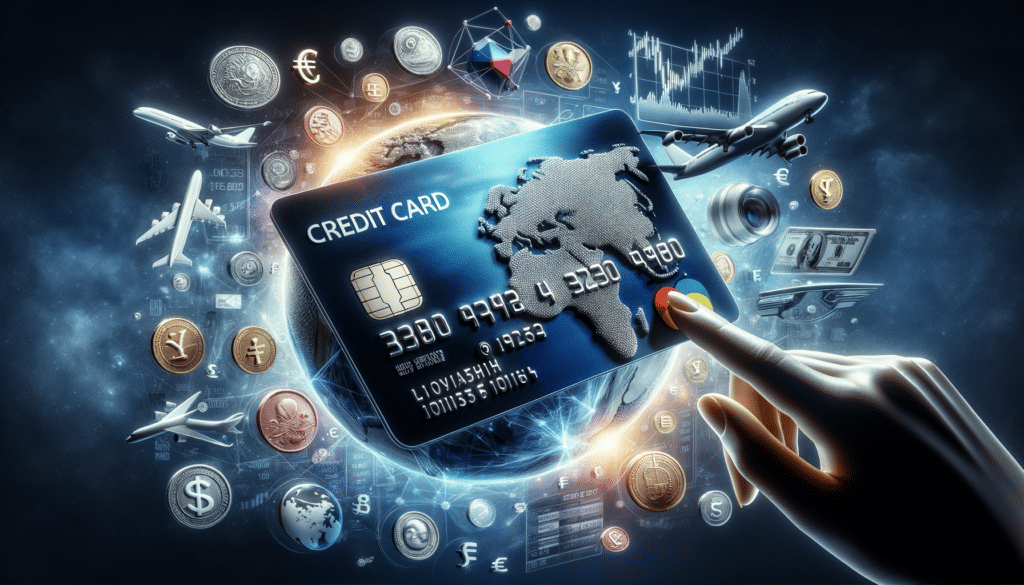Understanding Credit Cards: A Brief Overview
Credit cards have become an integral part of modern financial life, offering a convenient way to manage expenses and build credit. They are essentially a line of credit provided by banks or financial institutions, allowing users to borrow funds for purchases with the agreement to pay back the borrowed amount, often with interest, by a specified due date. Understanding how credit cards work is crucial for managing personal finance effectively.
Credit cards offer several advantages, such as:
- Convenience: They eliminate the need to carry cash and provide a record of all transactions.
- Credit Building: Responsible use can help build a strong credit score.
- Rewards and Perks: Many cards offer rewards like cashback, travel points, and discounts.
However, they also come with potential pitfalls, such as high-interest rates and the temptation to overspend. It’s essential to understand the terms and conditions of your credit card agreement to avoid financial pitfalls.
Types of Credit Cards: Finding the Right Fit
There is a wide array of credit cards available, each designed to meet different financial needs and lifestyles. Understanding the various types can help you choose the card that best suits your financial habits and goals.
Some common types of credit cards include:
- Standard Credit Cards: These are basic cards without many extra features, ideal for those who want a straightforward credit option.
- Rewards Credit Cards: These offer rewards like points, miles, or cashback for every dollar spent, making them suitable for frequent shoppers or travelers.
- Secured Credit Cards: Designed for those with limited or poor credit history, these require a security deposit but help in building credit.
- Balance Transfer Cards: These cards offer low or zero interest on transferred balances for a promotional period, ideal for consolidating debt.
Choosing the right type of credit card depends on your spending habits, financial goals, and credit history.
Managing Credit Card Debt: Strategies and Tips
While credit cards offer convenience and rewards, they can also lead to significant debt if not managed properly. Understanding how to manage credit card debt is key to maintaining financial health.
Here are some strategies to manage credit card debt effectively:
- Pay More Than the Minimum: Paying only the minimum can lead to high-interest charges. Aim to pay off the full balance each month.
- Create a Budget: Track your spending and create a budget to ensure you live within your means.
- Use Balance Transfer Offers Wisely: If you have high-interest debt, consider transferring it to a card with a lower interest rate.
- Seek Professional Advice: If debt becomes unmanageable, consider speaking with a financial advisor or credit counseling service.
By implementing these strategies, you can reduce debt and improve your financial well-being.
The Impact of Credit Cards on Credit Scores
Your credit card usage significantly impacts your credit score, which is a critical factor in your overall financial health. Credit scores affect your ability to secure loans, rent apartments, and even get certain jobs.
Here are some ways credit cards can impact your credit score:
- Payment History: Late payments can negatively affect your score, while on-time payments help build a positive history.
- Credit Utilization: Keeping your credit card balance low relative to your credit limit can boost your score.
- Length of Credit History: The longer your accounts have been open, the better it is for your score.
- Types of Credit: A mix of credit types, such as credit cards and loans, can positively impact your score.
Understanding these factors can help you use credit cards to improve your credit score effectively.
Future Trends in Credit Card Usage
The world of credit cards is constantly evolving, with new technologies and trends shaping how consumers use them. Staying informed about these trends can help you make better financial decisions.
Some future trends in credit card usage include:
- Contactless Payments: Increasingly popular for their convenience and speed, especially in the wake of the COVID-19 pandemic.
- Enhanced Security Features: Biometric authentication and advanced encryption to prevent fraud.
- Integration with Digital Wallets: Seamless integration with mobile payment platforms for added convenience.
- Personalized Rewards Programs: Tailored rewards and offers based on individual spending habits.
Keeping abreast of these trends can help you maximize the benefits of credit card usage while minimizing potential risks.





